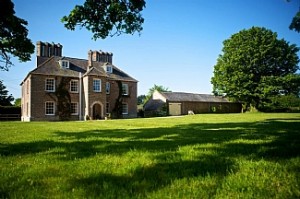Do you ever have those moments when you start poking about on the internet to find out one thing, and end up learning something completely different, and new, and unexpected? Chap and I had one of those moments the other day. It all started with a car advert on the telly (Toyota Auris Hybrid, fact fans). The music playing was ‘A Horse With No Name‘, written by Dewey Bunnell of the band America, and released in the UK and parts of Europe in late 1971, and in January 1972 in the US. I loved that song so much when it was released, and still do. I wanted to know more about it, and a quick google told me that although the band members were American, the song was written and demoed while they were staying at Arthur Brown‘s recording studio at Puddletown in Dorset.
What? What? Puddletown? Puddletown? Double take, re-read to check, then scratch head in incredulity at the incongruity: a song that is about as all-American as can be, and conjuring up a harsh, arid, desert world, was written in bucolic, lush, green and very English Dorset. Puddletown is a village 8 km to the east of Dorchester. It’s grown a lot with housing developments in recent years, but in the early 1970s was a small, out-of-the-way place.
At this point Chap (who lived in Dorchester for much of his youth) got very excited. He’d heard an urban legend that Arthur Brown (he of ‘Fire‘ and flaming headgear fame) had lived there, but had never had confirmation. More internet snooping was in order.
Details came. Arthur Brown and his Crazy World lived in a farmhouse in or near Puddletown, and had a recording studio there called Jabberwocky Studios. Various musicians pitched up and stayed, and as people came and went bands were formed and evolved into others, including Puddletown Express, Brown’s backing band. By 1970 Brown had left, and Puddletown Express developed into another short-lived band called Rustic Hinge and the Provincial Swimmers (May—August 1970). John Peel visited Jabberwocky Studios, to talk to Rustic Hinge about signing them to his record label. In August 1970 a BBC camera crew arrived, to film the farmhouse for a documentary on Tess of the d’Urbervilles by Thomas Hardy—apparently the farmhouse was Hardy’s model for one in which Tess stayed. The programme was produced by documentary maker Michael Croucher. He was amused by the musical anarchy going on around him, and filmed a performance of ‘Lychee’ by Rustic Hinge for the programme.
But no name given for the farmhouse. Where was it? we wondered. Cue more googling. And then we hit paydirt: a thread on a board about Rustic Hinge. With the very footage of ‘Lychee’ shot by the BBC, with the house in the background.
And someone in the thread identified the farmhouse as Ilsington Farmhouse, near Tincleton. Here was another ‘what?!’ moment—we know Ilsington Farm as both Chap and I worked quite a few years ago in one of the offices in the converted farm outbuildings there: Terrain Archaeology’s headquarters. Small world!
Tincleton is a small village about 2.5 km south of Puddletown, and Ilsington Farmhouse is a Grade II listed building dating from the 17th century. Yet more internet truffling and we learned that you too can rent the seven-bedroom farmhouse from a mere £2,000—£2,950 a week, and have a go at recreating those crazy days of 40 years ago. We also learned that Ilsington Farm has had a swallow hole incident (also known as a sink hole) a few years back. I’m fascinated by sink holes, so all this was too much excitement for one evening!
Caveat: a lot of the details here about Arthur Brown and his fellow musicians might well be wrong, as the various sites I’ve looked at seem to have accounts with conflicting details, chronology, etc. Considering the amount of drugs that were no doubt consumed back in the late 60s and early 70s there, it’s not surprising—I wonder that anyone could remember anything at all from back then in much detail!
September 2015 update: Nick Churchill has commented with a link to an article he wrote for Dorset Life in June this year, with masses of detail about the house and the recording studio – apparently Led Zeppelin recorded there too! Do give it a look – it’s a great read with fascinating information.
